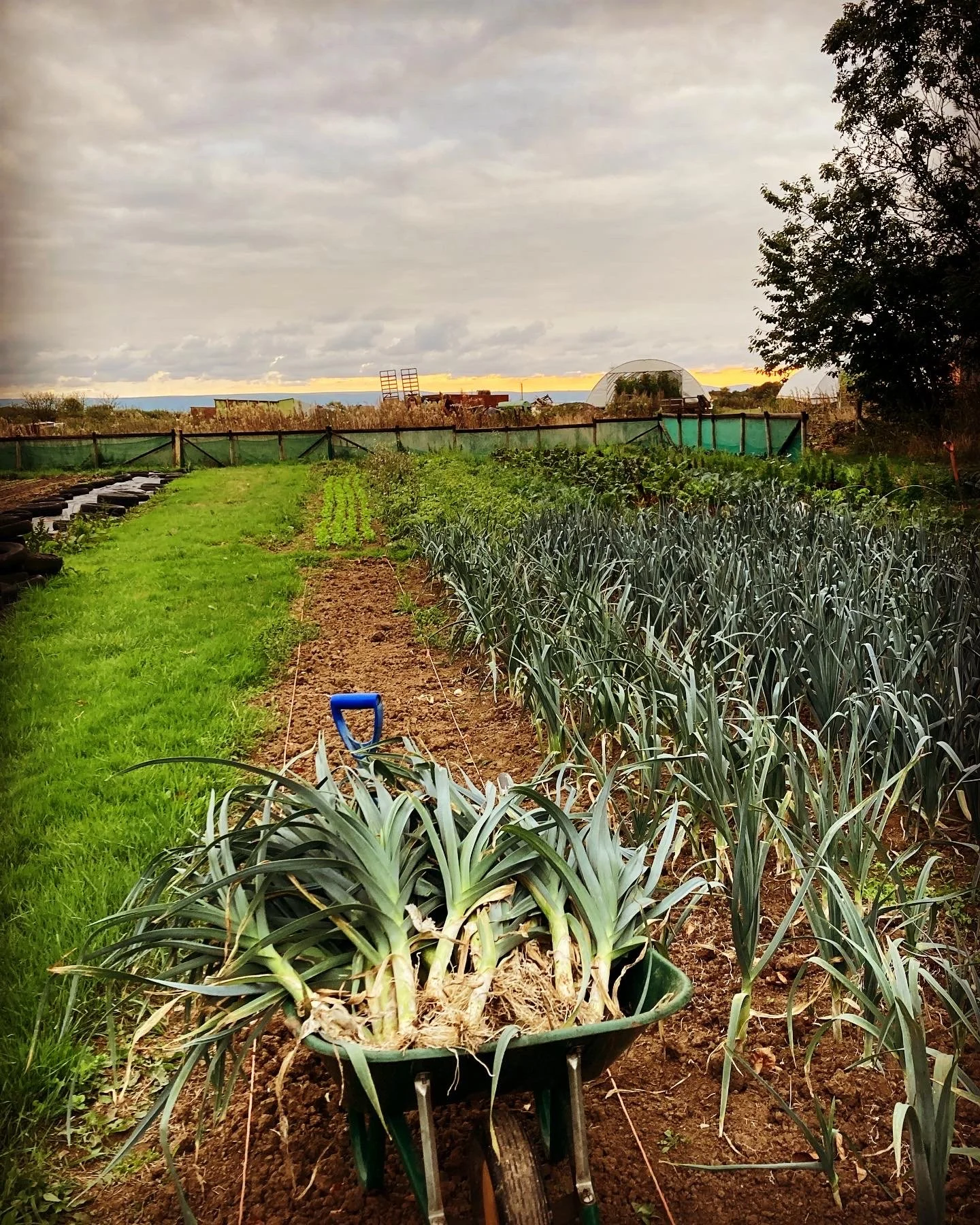Knowing where and how our food is grown should be an important part of our lives but for most it isn’t. Reclaiming a connection to your food is a positive step for us as individuals and the communities that we live in.
Slade Farm is an Organic Farm sitting between St Brides Major and the picturesque Heritage Coast in the Vale of Glamorgan. The food that is produced is grown and raised to Organic standards in a system that produces its own nutrients meaning that the food is truly sustainable.
Why Choose Locally Grown and Reared Organic Produce?
1. Flavourful Freshness:
When you buy locally grown produce from Slade Farm Organics, you're getting food at the peak of its flavour. Just-harvested vegetables not only taste better, but also retain more nutrients compared to produce that has travelled long distances. Buying seasonal food also reduces our carbon footprint. Supermarket veg brought in from South America can have up to 28 times the carbon footprint of veg grown here in Wales.
2. Supporting Local Farmers:
By purchasing from Slade Farm Organics, you're supporting local farmers and strengthening the community. When we set up the veg bag scheme we established it as a CSA, Community Supported Agriculture. Why is that important?
It looks after the farmer by binding in the members to the success and failure of the crop.
It looks after the community ensuring that people have a consistent source of highly nutritious food.
It looks after the land by ensuring commitment to Organic and Agroecological principles.
By becoming a member of our schemes, you help sustain small-scale agriculture and keeps money circulating within the local economy. Being an asset to the local community is what it is all about. We build on that through working with local school children and community groups to promote a connection to the land and our food.
3. Environmental Benefits:
Our way of farming and growing is to work with nature. We are not attempting to mass produce food. Consequently our impact on the land that we occupy is much less than industrial farms. We don’t use pesticides, herbicides and fungicides that damage the ecosystems that we all rely on. Likewise, we don’t over stock the ground and we don’t over produce waste products that can’t be used in the system. If you are supporting local farms with our ethos, you are actively contributing to a better environment that is encouraging and growing biodiversity.
Discover Slade Farm Organics
At Slade Farm Organics, we consider a commitment to organic farming practices and sustainability as central to our identity. Some people who shop with us value that, others just like the way the food tastes. Our farm shop is open every Thursday from 2-5 (expanding to 2-7 from the end of May) and every Saturday from 10-2. Make a plan and come and see us if you have the time.
1. Fresh Organic Vegetables:
With over 8 tonnes of fresh organic vegetables produced every season (May-December), Slade Farm Organics offers a wide variety of seasonal produce to get you working in the kitchen. From salad bags to juicy tomatoes, our vegetables are bursting with flavour and nutrients.
We offer weekly veg bags filled with a selection of our finest organic produce that comes from here on the farm. When you prepare a meal with Slade Farm Organic veg it is a direct connection to the land here in the Vale of Glamorgan.
2. Monthly Organic Meat Deliveries:
In addition to our Organic vegetables, Slade Farm Organics also offers monthly Organic meat deliveries to the local community. We rear rare breed Organic beef, pork, and lamb using sustainable and ethical farming practices. It’s a slow process that can’t be rushed.
Organically reared meat tends to be richer in essential nutrients such as omega-3 fatty acids and antioxidants, offering a healthier option. We also create organic sausages and burgers from our meat, perfect for summer BBQs! Ultimately, choosing organically reared meat is not just a culinary preference but also a conscientious decision towards sustainable agriculture and personal well-being.
3. Organic Welsh Flour
Yes, we grow organic wheat on the farm that is then milled at two Welsh water mills, Y Felin in St. Dogmaels and Felin Ganol. The Wheat that we grow is a heritage variety, a landrace called Hen Gymro (Old Welsh), that is perfect for home-made breads. When buying our organic flour, you are not just supporting our farm, but two traditional Welsh mills too.
Reconnect With Your Food!
Buying locally grown organic produce from Slade Farm is a conscious choice to eat healthier and to live more sustainably. We dedicate ourselves to producing food the way it should be. Visit our farm shop, book a monthly meat delivery or try one of our veg bags.




